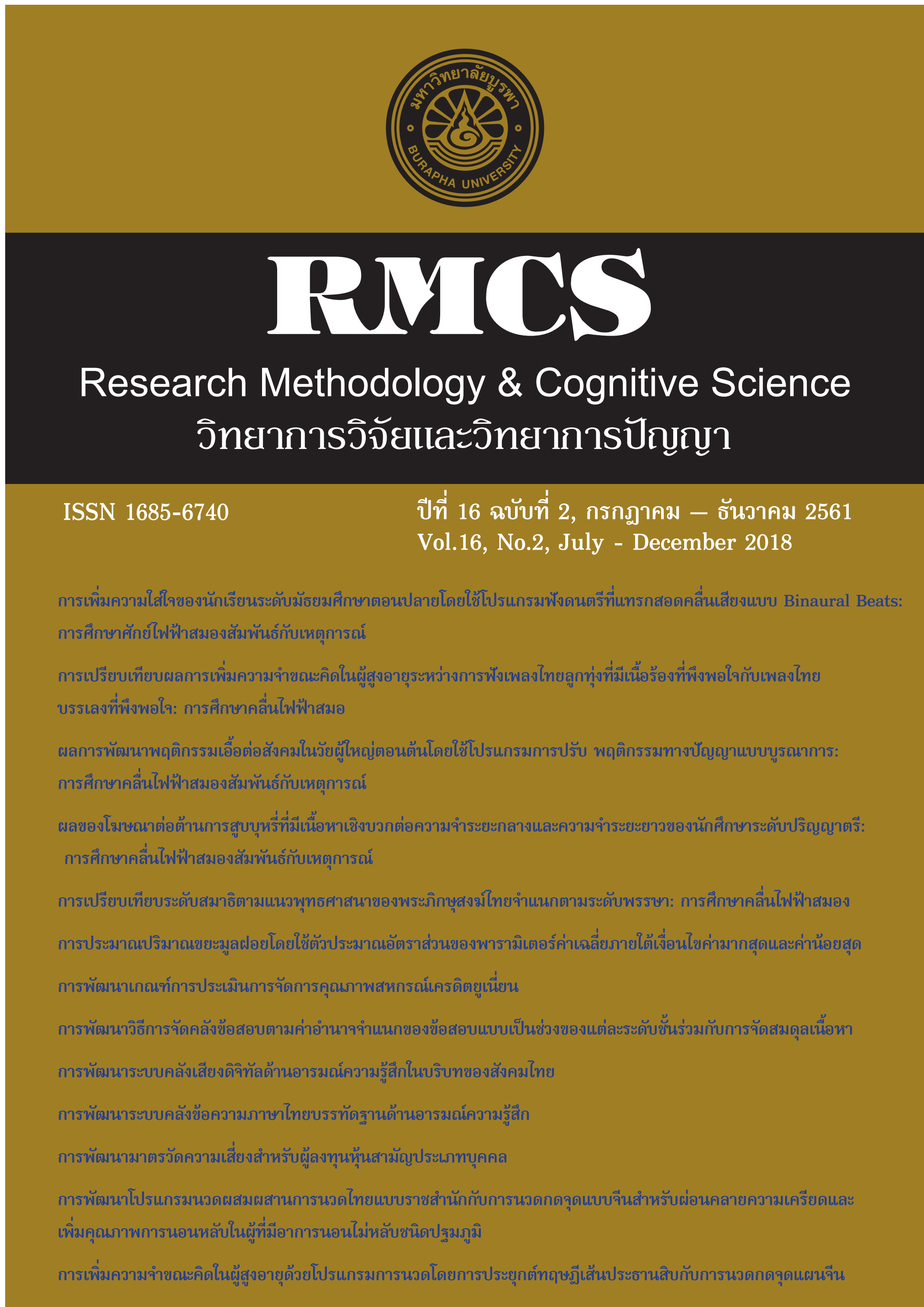Estimating Amount of Solid Waste using Ratio Estimator of Population Mean under Maximum and Minimum Values
Main Article Content
Abstract
The purposes of this research were: 1) propose the ratio estimator of population mean under maximum and minimum values ; 2) to compare the efficiency (MSE and PRE) of the propose ratio estimator with simple population mean estimator , classical ratio estimator , population mean under maximum and minimum values and ratio estimator of Subramani and Kumarapandiyan ( ) using the simulation with 60 situations by simple random sampling without replacement (SRSWOR) and 3) to estimate the yearly average amount of solid waste from Bangkok Metropolitan Administration in year 2019 using the propose ratio estimator. The accuracy under mean percent relative error (MPRE) have to lesser or equally in 10%
The results were as follows:
1) The ratio estimator of population mean under maximum and minimum values was more efficient than other estimators in every situations and more effective when the correlation and sample size are increased.
- The propose ratio estimator was acceptable for estimate the yearly average amount of solid waste from Bangkok Metropolitan Administration in year 2019 since the mean percent relative error (MPRE) was 2.95 % and the yearly average amount of solid waste 3,924,107.28 tons per year.
Article Details
References
สำนักสิ่งแวดล้อม กรุงเทพมหานคร. (2561). ปริมาณมูลฝอยที่จัดเก็บได้ในแต่ละปีงบประมาณ. วันที่ค้นข้อมูล 10 เมษายน 2561, เข้าถึงได้จาก http://bangkok.go.th/environment.
สำนักสิ่งแวดล้อม กรุงเทพมหานคร. (2558). แผนบริหารจัดการขยะมูลฝอยของกรุงเทพมหานคร พ.ศ. 2558-2562. กรุงเทพ: สำนักสิ่งแวดล้อม กรุงเทพมหานคร.
Cochran, W. G. (1977). Sampling Techniques (3rd ed.). New York: Wiley.
Al-Hossain, A. Y., & Khan, M. (2014). Efficiency of ratio, product, and regression estimators under maximum and minimum values, using two auxiliary variables. Journal of Applied Mathematics, 1-6. doi: 10.1155/2014/693782
Khan, M., & Shabbir, J. (2013). Some Improved Ratio, Product, and Regression Estimators of Finite Population Mean When Using Minimum and Maximum Values. The Scientific World Journal, 2013, 1-7. doi: 10.1155/2013/431868
Khan, M., Ullah, S., Al-Hossain, A. Y., & Bashir, N. (2015). Improved ratio-type estimators using maximum and minimum values under simple random sampling scheme. Hacettepe Journal of Mathematics and Statistics, 44(4), 923-931.
Sarndal, C. E. (1972). Sample Survey Theory vs. General Statistical Theory: Estimation of the Population Mean. International Statistical Institute, 40(1), 1-12.
Sisodia, B., & Dwivedi, V. (1981). Modified ratio estimator using coefficient of variation of auxiliary variable. Journal-Indian Society of Agricultural Statistics, 33(2), 13-18.
Singh, H., & Kakran, M. (1993). A modified ratio estimator using known coefficient of kurtosis of an auxiliary character. unpublished paper.
Singh, H., & Tailor, R. (2003). Use of known correlation coefficient in estimating the finite population mean. Statistics in Transition, 6(4), 555-560.
Subramani, J. (2016). A new median based ratio estimator for estimation of the finite population mean. Statistics in Transition New Series, 17(4), 591-604.
Subramani, J., & Kumarapandiyan, G. (2013). A new modified ratio estimator for estimation of population mean when median of the auxiliary variable is known. Pakistan Journal of Statistics and Operation Research, 9(2), 137-145.
Upadhyaya, L. N., & Singh, H. P. (1999). Use of transformed auxiliary variable in estimating the finite population mean. Biometrical Journal, 41(5), 627-636.
Yan, Z., & Tian, B. (2010). Ratio method to the mean estimation using coefficient of skewness of auxiliary variable. Information Computing and Applications, 103-110. doi: 10.1007/978-3-642-16339-5_14

